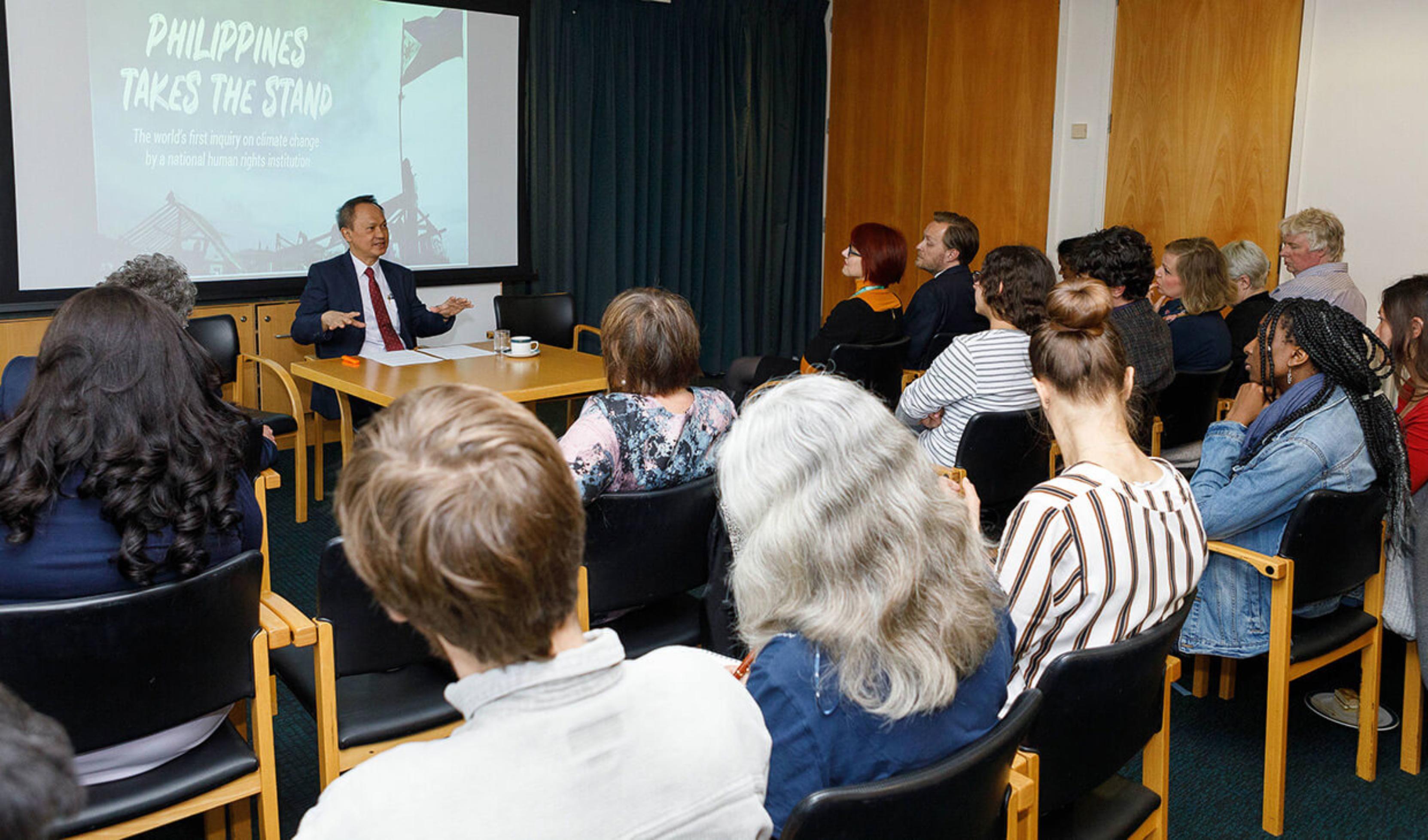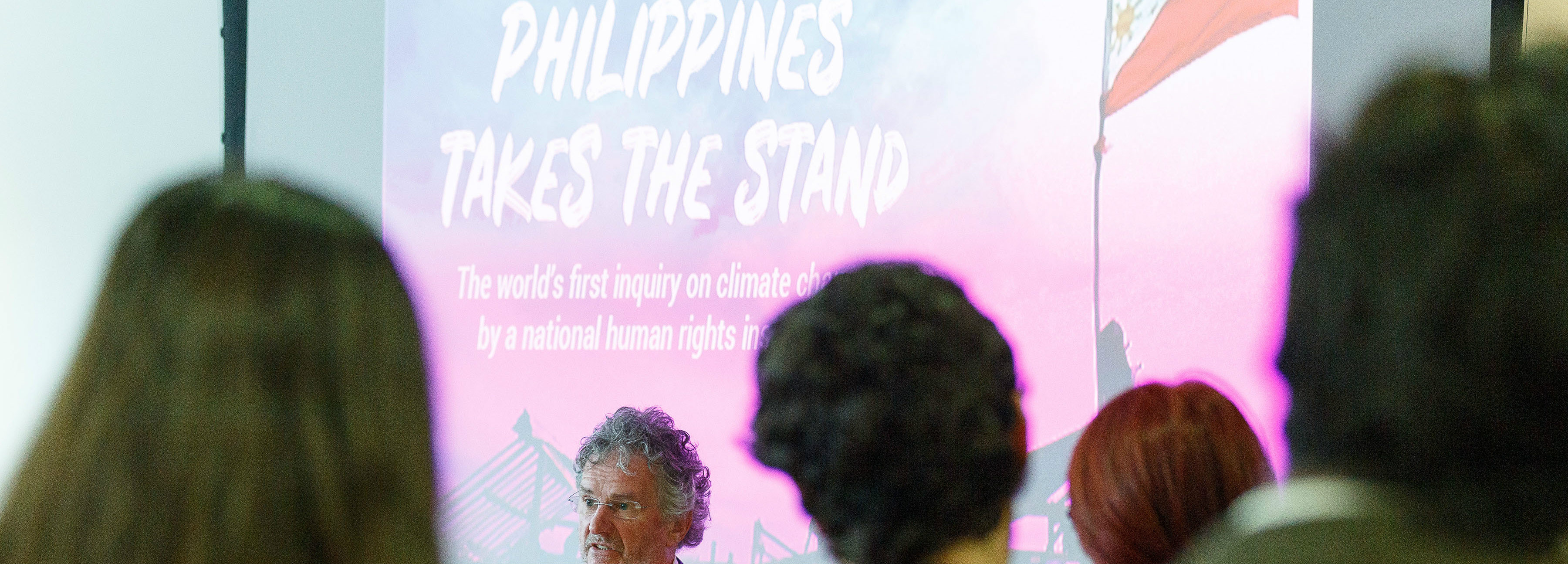Experts looking at the responsibility of major global corporate carbon emitters – so called ‘carbon majors’ – for the impacts of climate change have gathered at the University of Stirling.
The expert meeting, held between 24 and 26 April, was organised by Dr Annalisa Savaresi, Lecturer in Environmental Law in Stirling’s Faculty of Arts and Humanities, to support the Human Rights Commission of the Philippines in drafting the recommendations concluding its ‘carbon majors inquiry’.
The inquiry is the first investigation of its kind worldwide, and was initiated after violent typhoons wreaked havoc in the Philippines, causing widespread loss of life, and damage to property and livelihoods. These events prompted a group of Filipino citizens and civil society organisations to ask the Human Rights Commission of the Philippines to investigate the carbon majors’ responsibility for alleged breaches of human rights – including rights to: life, health, food, water, sanitation, adequate housing and self-determination.

Their petition was bolstered by research attributing the majority of global greenhouse gas emissions to the largest producers of crude oil, natural gas, coal and cement.
Dr Savaresi said: “Like other national human rights institutions, the Commission has a constitutional mandate to investigate allegations of violations of human rights of the Filipino people but does not have the power to provide compensation to victims. It can, however, declare that human rights have been violated and provide recommendations on how to address and redress the human rights violations it detects.”
“The fact that none of the carbon majors is headquartered in the Philippines makes the inquiry even more ground-breaking. Even though some of the respondents challenged its authority to carry out the investigation, the Commission decided to go ahead and start its inquiry.”
Opportunity
“The Commission has thus already made history, establishing an important precedent whereby a national human rights institution investigates the human rights responsibilities of corporations not headquartered in the territory of the state where the investigation takes place.”
Dr Savaresi said the inquiry provides an important opportunity to clarify corporate obligations in relation to climate change.
The Commission has received testimonies and gathered expert evidence around the world, including in New York and London, providing a forum for victims of alleged human rights violations to be heard.
Winners
On 24 April, academics, students and members of the public were invited to discuss the inquiry with the Commission at Stirling University. Invited guests included the head of the Scottish National Human Rights Commission, Judith Robertson, and the special envoy of the Global Alliance of National Human Rights Institutions, Professor Alan Miller.
At the event, the winners of a student competition to support the Commission in the drafting of its recommendations, were announced. The competition was launched in November 2018 by the Institute of Environmental Science for Social Change in the Philippines, the London School of Economics and Political Science, and the University of Stirling, and was entered by teams from all over the world.
The winning submission was prepared by Taya Arnold Emma Doucette, Jacqueline Hartigan and Chelsea Packman from Schulich School of Law at Dalhousie University, Canada. Taya, Emma and Jacqueline and Chelsea plan to donate the cash prize they received to a local Philippines NGO focusing on climate change adaptation. Their submission to the competition will feature in the next edition of Ratio, the journal of the Department of Law at the London School of Economics.

